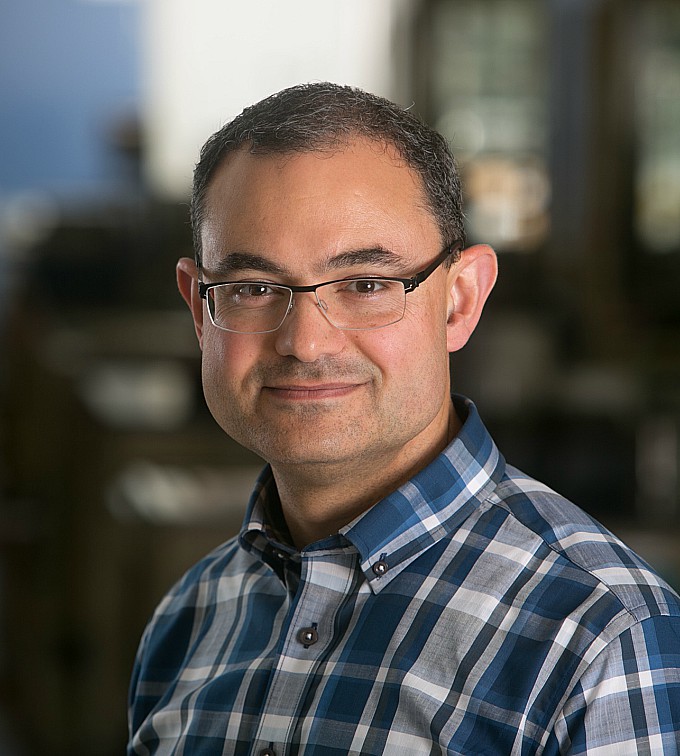McMaster professor recognized for contribution to macromolecular science

McMaster’s Chemistry & Chemical Biology continues its winning streak at the Chemical Institute of Canada’s annual awards. Alex Adronov, Chemistry & Chemical Biology, is this year’s winner of the Chemical Institute of Canada’s Macromolecular Science and Engineering Award. The award is presented to a researcher who has made a distinguished contribution to macromolecular science or engineering. Other McMaster professors who received the award include Harald Stöver (2016) and Michael Brook (2017), making this the third win in a row for Chemistry & Chemical Biology.
Adronov won recognition for his work involving the synthesis of complex polymers with controlled architectures and well-defined reactivity, as well as for his investigations of the interactions between conjugated polymers and single-walled carbon nanotubes (SWNTs). Over the course of his career, he has established himself as a national leader in the multi-step preparation of novel polymers and their applications toward the development of SWNT-based nanostructures. SWNTs are hollow, narrow tubes formed from one-atom-thick sheets of carbon; they are one hundred thousand times smaller than a human hair. They also have different properties depending on their radius and the way in which carbon atoms are arranged within their walls. Applications for SWNTs can be found in nano-scale electronics, flexible transparent electrodes, sensors and optics. Because of their exceptional mechanical strength, they are also used in various sporting equipment, ranging from golf clubs to the frames of high-end racing bikes.
The ability to control and manipulate such small structures is critical to the realization and development of new applications for SWNTs. Adronov’s team studies the interactions of conjugated polymers with the surface of SWNTs to find new methods to purify them and to introduce previously unrealized reactivity. Similar to painting a surface, Adronov decorates nanotubes with polymers that modify their properties and allow them to be incorporated in various materials that are otherwise incompatible. This work has been described as novel, creative and extremely important in allowing the processing of SWNTs without affecting their conductivity and structural properties. His efforts are providing insight into better manufacturing practices, which may lead to increased use and commercialization of these hybrid structures. His current goal is to develop highly sensitive chemo-resistive sensors for a wide variety of targets, ranging from trace explosives to illicit drugs.
In addition to his highly successful research program, Adronov is an active member of the polymer and materials communities. He has organized and chaired many symposia at the annual CSC conferences, as well as international meetings (ACS, Gordon Conferences, etc.), and has served as Treasurer of the Materials Science and Engineering Division (MSED). As an active faculty member, he focused on the quality of graduate education while Associate Chair of Graduate Studies; his current focus is on enhancing the research profile of the Department as Associate Chair of Research. For his efforts, he has been awarded the Polanyi Prize (2002), the Premier’s Research Excellence Award (2003), the Lash Miller Award in 2007, an NSERC Discovery Accelerator Grant in 2012, and the Award for Research Excellence in Materials Chemistry in 2013, which is also a national award given by the Chemical Institute of Canada. His devotion to teaching and mentorship has been recognized with the 2017 McMaster Student Union (MSU) Award for Excellence in Teaching, as well as a nomination for the President’s Award for Excellence in Graduate Supervision (2015).
A McMaster University professor since 2001, Adronov received his B.Sc. from McMaster in 1996 and his Ph.D. from the University of California, Berkeley in 2001. Over his career, he has worked with a team of 24 graduate students, 8 postdoctoral fellows, and 25 undergraduates, and has published over 105 peer-reviewed publications.
He will officially receive his award on May 30 at the Canadian Society for Chemistry Conference in Edmonton, where he will deliver an award lecture on his research.

